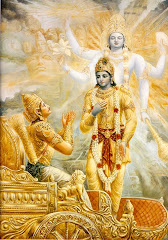
The following four scenarios depict some simple yet crucial 'corporate lessons'. Lessons that every employee should keep in mind in order to be 'successful' in the corporate world.
Note on Sukumar Ray (1887-1923): Ray was born in a Brahmo family in Calcutta (now Kolkata), India on 30 October 1887. Born in the era which can be called the pinnacle of the Bengal Renaissance, he grew up in an environment that fostered his literary talents. His father, Upendrakishore Ray (Ray Chowdhury) was a talented writer of stories and popular science; painter and illustrator extraordinaire; musician and composer of songs; a pioneering technologist and hobbyist astronomer. Upendrakishore was also a close friend of Kabiguru Rabindranath Tagore, who directly influenced Sukumar. Among other family friends were Jagadish Chandra Bose and Prafulla Chandra Roy.
In 1906, Ray graduated with Hons. in Physics and Chemistry from the Presidency College, Kolkata. While still a student at Presidency College, he created the home-based "Nonsense Club," whose membership was open to those with a flair for the ridiculous, practical joking and, most of all, acting. He was trained in photography and printing technology in England and was a pioneer of photography and lithography in India. While in England, he also delivered lectures about the songs of Rabindranath Tagore - even before he (Tagore) won the Nobel Prize. Sukumar was an acclaimed illustrator. As a technologist, he also developed new methods of halftone blockmaking, and technical articles about this were published in various journals in England. His father, Upendrakishore also launched the children's magazine, "Sandesh," but soon after Sukumar's return from England, Upendrakishore passed away. Sukumar then ran the family printing and publishing businesses and the "Sandesh" (magazine) for about eight years. His younger brother Subinoy helped him in his endeavours, while other relatives pitched in by writing for "Sandesh."
Sukumar Ray was the father of the legendary Indian filmmaker Satyajit Ray. He was also known as the convenor of the "Monday Club," a weekly gathering of likeminded people at the Ray residence, where the members were free to express their irreverent opinions about the world at large. A number of delightful poems were penned by Sukumar Ray in relation to the matters concerning "Monday Club," primarily soliciting attendance, announcing important meetings, etc.
Sukumar Ray passed away on September 10, 1923 at the age of 36, (the cause was the severe infectious fever, "Kala azar," for which there was no cure at the time). He left behind his widow and their only child, Satyajit. Satyajit Ray would later become the most well known of Indian filmmakers and shoot a documentary on Sukumar Ray in 1987, just 5 years before his own death.
Sukumar Ray was a Bengali poet, story writer and playwright focussing on the genre: humour. As perhaps the most famous Indian practitioner of the genre of "literary nonsense," he is often compared to the celebrated English author, Lewis Carroll. Ray's works such as the collection of poems, "Abol tabol" (Gibberish"), the novella, "HaJaBaRaLa" (Mumbo Jumbo), the collection of short stories, "Pagla Dashu" ("Crazy Dashu") and the play, "Chalachittachanchari," are considered to be masterpieces of the genre of nonsense and equal in stature to Lewis Carroll's "Alice's Adventures in Wonderland." His other works include: "Khai-Khai" ("Eat-Eat"), "Heshoram Hushiyarer Diary" ("The diary of Heshoram Hushiyar"), "Jhalapala O Onanyo Natok" ("Cacophony and Other Plays"), "Lakkhaner Shoktishel" ("The Weapon of Lakkhan") and "Shabdakalpadrum" ("Cacophony") among others. They are regarded as some of the greatest treasures of Bangla literature. His faculty at word play, logic, and fantasy has delighted audiences ranging from children to the literary elite. More than 80 years after his death, Ray remains one of the most popular of children's writers in both West Bengal and Bangladesh.
Note on "Abol tabol": "Abol Tabol" (literally translates as, "Gibberish" or "Weird and Random") is a collection of Bengali children's poems and rhymes composed by Sukumar Ray, and first published on 1st September 1923. It consists of 43 named and 7 unnamed short rhymes, all considered to be in the genre of literary nonsense. The Bengali readers were exposed to a new "nonsense" fantasy world by the poems in "Abol Tabol." This selection offers the best of Sukumar Ray's world of pun-riddled and fun-filled poetry.
His collection had several characters which became legendary in Bengali literature and culture. Some characters have even found idiomatic usage in the language. Some of the most famous characters in "Abol tabol" are: Kath Burro, Head Officer Burrobabu, Kumro Potash, Sat Patroe, Chandidaser Khuroe, Bombagarher Raja, Hunkumukho Hyangla, Ramgorurer Chhana, Tyansh Goru, Shashthi Charan, Panto Bhoot, Nera and Katukutuburo.
Following are a few lines from "Ramgorurer Chhana"..... Read on.....
"Ramgorurer Chhana
Haashte tader maana
Haashir kotha sunle bole
Hashbo na na na na."
It is very difficult to translate these lines into any other language and simultaneously retain their flavour and pun..... here is the link that leads to some of the literary works of Sukumar Ray: http://barnamala.org/barnamala/2
Note: Information on Sukumar Ray - gathered courtesy Wikipedia.
Photograph: A series of pictures depicting the 'transformation' that an employee undergoes while working in the same organisation for a long period! It is all in good humour...














No comments:
Post a Comment